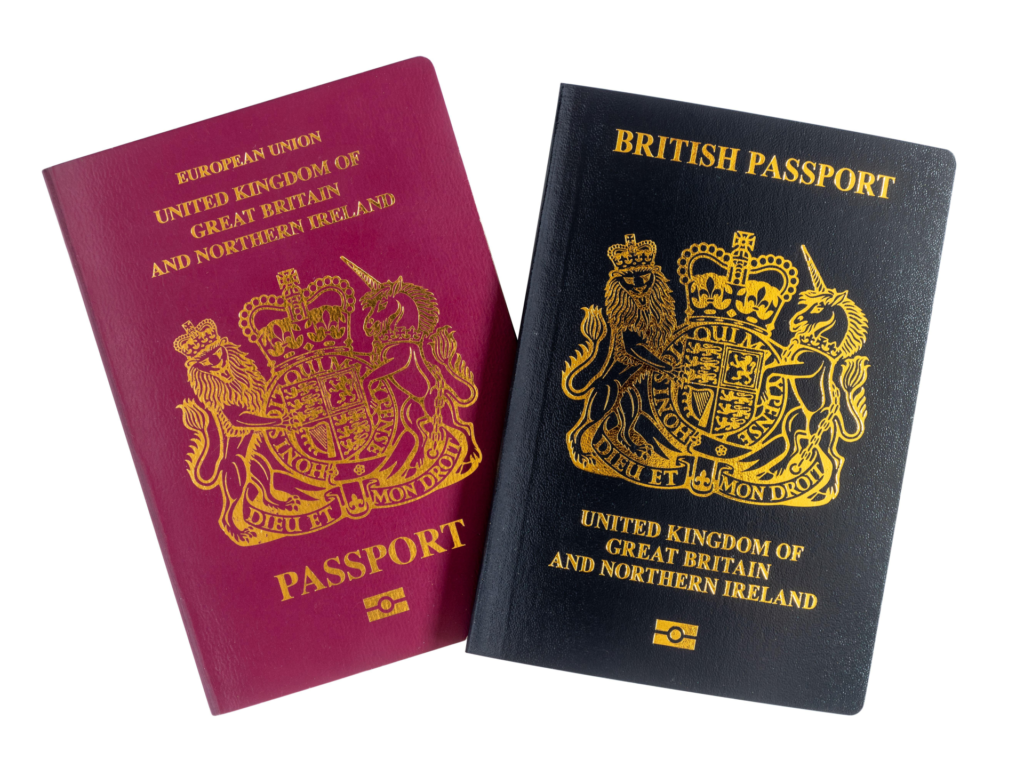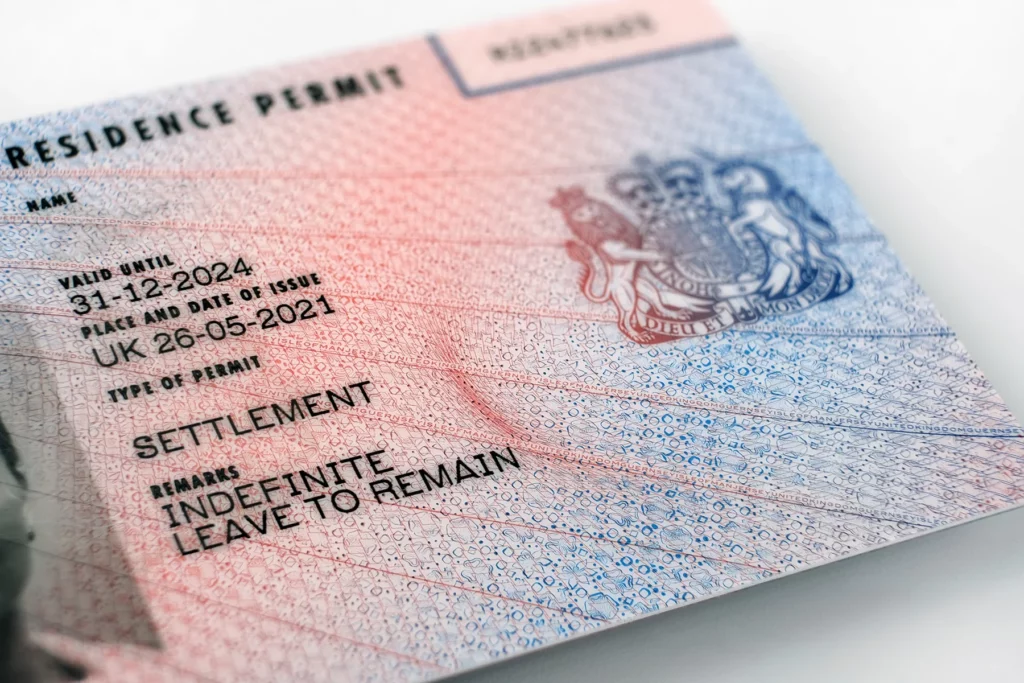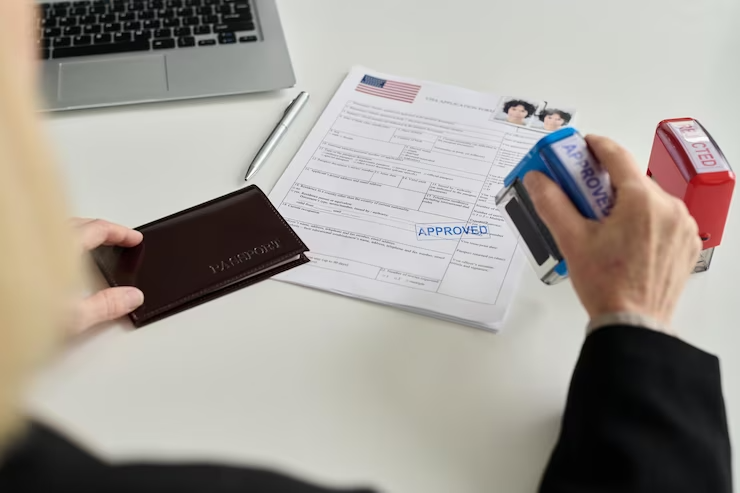Welcome to the ultimate guide on securing Permanent Residency in the United Kingdom from Bangladesh. Discover invaluable insights, step-by-step processes, and essential tips to navigate the intricacies of UK immigration. Whether you’re seeking work opportunities, higher education, or a fresh start, this comprehensive guide has got you covered.
What is PR (Permanent Residency) in the UK?
Obtaining a Permanent Residency (PR) in the United Kingdom offers numerous benefits, including the right to live and work indefinitely in the country. In this comprehensive guide, we will explore the various pathways available for Bangladesh students to achieve PR in the UK. We’ll cover the general eligibility requirements, different visa options, step-by-step processes, and essential tips to improve your chances of success.
PR in UK for Bangladesh Students
Bangladeshi students have a promising opportunity to obtain Permanent Residency (PR) in the United Kingdom. The UK values the contributions of international students, including those from Bangladesh, and offers pathways for them to settle in the country permanently. PR provides students with the ability to live, work, and study in the UK without any time restrictions. It also grants access to public services, opportunities for personal and professional growth, and a stable future in the UK.
Bangladeshi students can explore various routes such as the Post Study Work Visa, Skilled Migration, Employer-Sponsored Visas, and Skill Select to achieve their goal of obtaining PR in the UK. With determination, adherence to immigration rules, and meeting the eligibility criteria, Bangladeshi students can embark on a successful journey towards securing PR in the UK.
General Eligibility Requirements & Rules To Get PR In UK
To be eligible for Permanent Residency (PR) in the United Kingdom, applicants must fulfill certain general eligibility requirements and adhere to specific rules. Understanding these requirements is essential for a successful PR application. Here are the detailed explanations of the key eligibility requirements and rules:
- Lawful Residence: Applicants must have resided in the UK lawfully for a specific period to be eligible for PR. The length of lawful residence required varies depending on the visa category. Generally, it ranges from 2 to 5 years. It is important to maintain lawful status throughout the residence period, including abiding by visa conditions and renewing visas when necessary.
- Good Character: Applicants are expected to demonstrate good character to be granted PR. This means having no criminal record and not being involved in any activities that raise concerns about their character. Any criminal convictions or immigration rule breaches can affect the assessment of good character.
- English Language Proficiency: Meeting the English language proficiency requirements is crucial for obtaining PR. Applicants may need to demonstrate their proficiency in the English language by providing evidence of passing approved English language tests, such as the International English Language Testing System (IELTS), or by completing a degree taught in English from a recognized institution.
- Immigration Rule Compliance: Applicants must have complied with the immigration rules and regulations during their stay in the UK. This includes abiding by visa conditions, such as not working in prohibited employment, not overstaying the authorized period, and not breaching any other visa conditions.
- Financial Stability: Applicants may need to provide evidence of financial stability as part of the PR application process. This is to demonstrate their ability to support themselves and any dependents without relying on public funds. The specific financial requirements may vary depending on the visa category and individual circumstances.
- Knowledge of Life in the UK: Applicants may be required to pass the Life in the UK test as part of their PR application. The test assesses their knowledge of British history, culture, and society. It covers topics such as the British government, traditions, customs, and key historical events. Passing the test demonstrates an understanding of life in the UK.
- Continuous Residence: Maintaining continuous residence in the UK is an important requirement for PR eligibility. This means avoiding long absences from the country and ensuring that the time spent outside the UK does not exceed the allowed limits. The specific requirements for continuous residence vary depending on the visa category.
- Immigration Health Surcharge: Applicants may be required to pay the Immigration Health Surcharge (IHS) as part of their PR application. The IHS grants access to the National Health Service (NHS) benefits while in the UK. The payment amount and duration may vary depending on the visa category and individual circumstances.
- Age Restrictions: Some visa categories have age restrictions that applicants must meet to be eligible for PR. For example, the Youth Mobility Scheme is available for individuals aged 18 to 30. It is important to check the age requirements specific to the chosen visa category.

How to get PR in the UK?
In the United Kingdom, international students have various visa options to consider when seeking Permanent Residency (PR) after completing their studies. Let’s explore the key pathways available for international students to transition from their student visa to PR:
Post-Study Work Visa:
The Post Study Work Visa, also known as the Graduate Route or the new Graduate Immigration Route, is designed specifically for international students who have completed a degree at a recognized UK higher education institution. This visa allows graduates to work in the UK for up to two years after completing their studies. It provides an excellent opportunity to gain valuable work experience, explore career opportunities, and contribute to the UK workforce. Upon completing the required period of work, graduates may become eligible to apply for PR.
Skilled Migration:
Skilled Migration is a pathway that allows individuals with in-demand skills and qualifications to apply for PR in the UK. Under this category, international students who have completed their studies in the UK can potentially secure PR if they meet specific skill and points-based requirements. This route may require securing a job offer from a UK employer, meeting specific skills criteria set by the government, and demonstrating English language proficiency. The Skilled Migration category offers a pathway to PR based on the applicant’s skills and contributions to the UK economy.
Employer-Sponsored Visa:
An Employer-Sponsored Visa offers an opportunity for international students to transition from their student visa to PR by obtaining a job offer from a UK employer. This visa category requires sponsorship from a UK employer who is a licensed sponsor. The employer must provide a job offer that meets certain requirements, and the position must be at an appropriate skill level. Once the applicant has worked for a specified period in the sponsored job, they may become eligible to apply for PR.
Step-by-Step PR Process of UK
The process of obtaining a Permanent Residency (PR) in the United Kingdom typically involves several steps. While the specific requirements and procedures may vary depending on the visa category, here is a general step-by-step guide to the PR process in the UK:
Step 1: Determine Eligibility:
Before beginning the PR application process, it is crucial to assess your eligibility for the desired visa category. Review the specific eligibility requirements, such as the length of lawful residence, good character, English language proficiency, and other criteria applicable to your chosen route.
Step 2: Gather Required Documents:
Once you have determined your eligibility, gather all the necessary documents to support your PR application. Common documents may include identification documents (passport, visa, etc.), proof of residence in the UK, educational qualifications, English language proficiency certificates, employment records, and any other supporting evidence specific to your visa category.
Step 3: Submit the Application:
Complete the PR application form accurately and thoroughly. Attach all the required supporting documents and pay the applicable fees. Submit the application online or by post, following the instructions provided by the UK Visas and Immigration (UKVI) or relevant authorities. Ensure that you meet any specified deadlines.
Step 4: Attend Interviews or Appointments (if applicable):
Depending on the visa category and individual circumstances, you may be required to attend interviews or appointments as part of the PR process. This could include biometric data collection, interviews to assess your eligibility or medical examinations. Follow the instructions provided and attend these appointments as scheduled.
Step 5: Await a Decision:
After submitting your PR application and attending any necessary interviews or appointments, you will need to wait for a decision. The processing time can vary depending on the visa category and the volume of applications. You can check the current processing times on the UKVI website or other official sources.
Step 6: Receive PR Status:
If your PR application is approved, you will receive a notification granting you Permanent Residency in the UK. This status allows you to live, work, and study in the UK indefinitely. You may also receive a Biometric Residence Permit (BRP) as evidence of your PR status.
Step 7: Comply with Post-PR Requirements:
Once you have obtained PR in the UK, it is important to comply with any post-PR requirements. This may include notifying authorities of any changes in personal circumstances, adhering to UK tax obligations, and continuing to meet the residency requirements to maintain PR status.

What are the Best PR Visa Options for International Students?
When it comes to Permanent Residency (PR) options for international students in the UK, several visa categories offer pathways to PR. Here are some of the best PR visa options, along with their key points, eligibility criteria, application process, and approximate costs:
Tier 2 (General) Visa:
- Points: This visa operates on a points-based system, where applicants must accumulate a minimum number of points based on factors such as job offer, skill level, English language proficiency, and salary.
- Eligibility Criteria: Requires a job offer from a UK employer with a Tier 2 sponsor license, meeting the specific skill and salary requirements.
- How to Apply: The employer must sponsor the applicant and issue a Certificate of Sponsorship (CoS). The applicant then applies for the visa online and pays the relevant fees.
- Approximate Cost: The visa fee ranges from £610 to £1,408, depending on the applicant’s circumstances, and there is an additional Immigration Health Surcharge (IHS) fee.
Innovator Visa:
- Points: Points are not applicable to the Innovator Visa; instead, applicants must meet specific requirements related to their business idea and endorsement from an approved endorsing body.
- Eligibility Criteria: Requires endorsement from an approved endorsing body, investment funds, and a viable business idea.
- How to Apply: The applicant submits an endorsement application to an approved endorsing body. Once endorsed, they can apply for the Innovator Visa online, paying the applicable fees.
- Approximate Cost: The visa fee is £1,021, and the IHS fee is also applicable.
Global Talent Visa:
- Points: Points are not applicable to the Global Talent Visa; instead, applicants must demonstrate exceptional talent or promise in the fields of science, humanities, engineering, the arts, or digital technology.
- Eligibility Criteria: Requires endorsement from a designated competent body in the applicant’s respective field.
- How to Apply: The applicant applies for endorsement from the designated competent body and, once endorsed, applies for the visa online, paying the applicable fees.
- Approximate Cost: The visa fee is £1,277, and the IHS fee is also applicable.
Start-up Visa:
- Points: Points are not applicable for the Start-up Visa; instead, applicants must have an innovative business idea and be endorsed by an approved endorsing body.
- Eligibility Criteria: Requires endorsement from an approved endorsing body, a viable and innovative business idea, and sufficient maintenance funds.
- How to Apply: The applicant submits an endorsement application to an approved endorsing body. Once endorsed, they can apply for the Start-up Visa online, paying the relevant fees.
- Approximate Cost: The visa fee is £363, and the IHS fee is also applicable.
It’s important to note that the eligibility criteria, application process, and costs may change over time. Therefore, it is advisable to refer to the official UK government sources or consult with an immigration professional for the most up-to-date and accurate information related to specific PR visa options for international students in the UK.
How to get PR in the UK with a Student Visa?
Getting a Permanent Residency (PR) in the UK with a Student Visa is possible through specific routes. Here’s a general overview of how to transition from a Student Visa to PR:
- Complete an Eligible Course:
First, you need to enroll in and successfully complete an eligible course at a recognized UK educational institution. This could be an undergraduate degree, a postgraduate degree, or a Ph.D.
- Extend your Student Visa:
After completing your course, you may be eligible to extend your Student Visa. Explore options like the Graduate Route (Post Study Work Visa) or other visa categories that allow you to remain in the UK for further study or work.
- Secure a Job Offer:
To increase your chances of obtaining PR, secure a job offer from a UK employer. This could be achieved through the Graduate Route, where you can work for up to two years after graduation. Alternatively, you can explore other work visas categories, such as the Tier 2 (General) Visa or the Skilled Worker Visa.
- Meet the Eligibility Criteria:
To apply for PR, you must meet the eligibility criteria specific to the visa category you choose. This typically includes requirements related to job offer, skill level, English language proficiency, salary, and length of residence in the UK.
- Apply for the Relevant Visa:
Once you meet the eligibility criteria, you can apply for the relevant visa category that leads to PR. For example, if you secure a job offer from a UK employer, you may apply for a work visa such as the Tier 2 (General) Visa or the Skilled Worker Visa. Each visa category has its own application process, requirements, and fees.
- Maintain Lawful Residence:
Throughout the process, ensure that you maintain lawful residence in the UK. Adhere to visa conditions, renew visas when required, and comply with immigration rules and regulations.
- Apply for Indefinite Leave to Remain (ILR):
Indefinite Leave to Remain (ILR) is the status that grants PR in the UK. After meeting the specific requirements, such as the length of residence and other criteria defined by the chosen visa category, you can apply for ILR. ILR allows you to live and work in the UK indefinitely.
- Apply for British Citizenship (Optional):
Once you have obtained ILR, you may be eligible to apply for British citizenship after a certain period. British citizenship offers additional benefits, such as the right to vote and access to a UK passport.
Getting PR after Masters
Obtaining a Permanent Residency (PR) in the UK after completing a master’s degree is possible through various visa options. Here are some key pathways to consider:
1.Post-Study Work Visa (Graduate Route):
The Post Study Work Visa, also known as the Graduate Route, allows international students who have completed a degree at a UK higher education institution to work in the UK for up to two years after graduation. During this period, you can gain valuable work experience, explore career opportunities, and potentially transition to other visa categories that lead to PR.
To be eligible for the Graduate Route, you must have successfully completed an eligible course at an approved UK institution. You must also have a valid Student Visa at the time of application. There is no requirement for a job offer or sponsorship, and you can work in any role at any skill level. However, it’s important to meet the English language proficiency requirement and maintain compliance with immigration rules during the visa period.
2. Tier 2 (General) Visa (Skilled Worker Visa):
The Tier 2 (General) Visa, now known as the Skilled Worker Visa, is a work visa that allows skilled workers to live and work in the UK. If you secure a job offer from a UK employer who is a licensed sponsor, you may be eligible to apply for this visa.
To qualify for the Tier 2 (General) Visa, you need to meet specific requirements, including having a job offer from a licensed sponsor, meeting the skill and salary thresholds, demonstrating English language proficiency, and fulfilling the maintenance requirements. The visa is typically granted for up to five years, after which you may become eligible to apply for ILR (Indefinite Leave to Remain), leading to PR.
3. Other Work Visa Categories:
Besides the Graduate Route and the Tier 2 (General) Visa, there are other work visa categories that may lead to PR. These include the Tier 1 (Entrepreneur) Visa, which is for individuals looking to establish or take over a business in the UK, and the Tier 1 (Investor) Visa, which is for high-net-worth individuals making a substantial financial investment in the UK.
Each visa category has its own set of requirements, application processes, and criteria for transitioning to PR. It’s essential to carefully review the specific eligibility criteria, document requirements, and the latest immigration rules associated with each visa category.

How Long Does it Take to Get PR in the UK?
The length of time it takes to obtain Permanent Residency (PR) in the UK can vary depending on the visa category and individual circumstances. Here’s a brief overview of the timeframes associated with different routes:
Post-Study Work Visa (Graduate Route):
The Graduate Route allows international students to work in the UK for up to two years after completing their studies. After successfully completing the requirements of the Graduate Route, you may be eligible to apply for Indefinite Leave to Remain (ILR) and obtain PR. The specific timeframe for ILR eligibility will depend on factors such as continuous residence, meeting the requirements, and complying with immigration rules.
Tier 2 (General) Visa (Skilled Worker Visa):
The Tier 2 (General) Visa, now known as the Skilled Worker Visa, typically grants a visa for up to five years. After completing five years of lawful residence in the UK under this visa category, you may become eligible to apply for ILR, leading to PR.
Other Visa Categories:
The timeframes for obtaining PR through other visa categories, such as the Innovator Visa, Global Talent Visa, or Start-up Visa, can vary. These routes may have specific requirements and criteria that must be met before becoming eligible to apply for ILR and PR.
It’s important to note that the timeframes mentioned are general guidelines and can be subject to change based on immigration policies and individual circumstances.
What Can Disqualify You from Not Getting PR In the UK?
Several factors can potentially disqualify individuals from obtaining Permanent Residency (PR) in the UK. While specific eligibility requirements vary depending on the visa category and circumstances, here are some common reasons that may result in the denial of PR:
- Immigration Violations: Any violation of immigration laws or regulations, such as overstaying a visa, providing false information, or engaging in prohibited activities, can disqualify individuals from obtaining PR. It is crucial to maintain lawful status and adhere to the terms and conditions of your visa.
- Criminal Convictions: Serious criminal convictions or involvement in criminal activities can negatively impact an application for PR. The UK authorities consider the character and conduct of applicants, and certain convictions may be deemed as a risk to public safety or the country’s security.
- Insufficient Financial Resources: Some visa categories require applicants to demonstrate sufficient financial resources to support themselves and any dependents. Failing to meet the financial requirements may lead to the rejection of the PR application.
- Inadequate English Language Proficiency: For many visa categories, including those leading to PR, applicants must demonstrate a certain level of English language proficiency. Not meeting the required language standards can be a barrier to obtaining PR.
- Incomplete Documentation: Failure to submit complete and accurate documentation as required by the visa category can result in the refusal of the PR application. It is essential to carefully follow the guidelines and provide all the necessary supporting documents.
- Ineligibility for Specific Requirements: Each visa category has specific requirements that applicants must meet. This includes factors such as educational qualifications, work experience, job offers, or endorsements. Failure to meet these specific requirements can disqualify individuals from obtaining PR.
- Changes in Immigration Policies: Immigration policies and regulations are subject to change. What may have been permissible at one point in time may no longer be the case. It is important to stay updated with the latest immigration rules and policies to avoid potential disqualification.
Tips to Improve Chances of Gaining PR
To improve your chances of gaining Permanent Residency (PR) in the UK, there are several factors to consider and steps you can take. Here are some tips to enhance your eligibility:
English Language Ability:
Strong English language skills are crucial for most visa categories leading to PR. Improving your English proficiency by taking language courses, such as IELTS or other recognized language tests, can positively impact your application. Aim to achieve the required language score or even surpass it, as higher language proficiency can enhance your overall eligibility.
Work Experience:
Having relevant work experience can be advantageous for certain visa categories. Building a solid professional background in your field of expertise demonstrates your skills and contributions to the UK job market. It can increase your chances of securing job offers, meeting eligibility criteria, and ultimately obtaining PR.
Eligible Courses to Study:
Choose a course of study that aligns with the UK’s skills shortage list or high-demand occupations. Opting for subjects or programs that are in demand can enhance your employment prospects and eligibility for work visas that lead to PR. Research the current market needs and consider courses that can provide you with a competitive edge.
State Nomination:
In some cases, certain regions or states in the UK offer state nomination programs that provide additional pathways to PR. These programs often target specific skills or occupations that are in demand within those regions. Research if any state nomination options are available and if your qualifications and experience align with their requirements.
Professional Year:
Participating in a Professional Year program can enhance your employability and increase your chances of obtaining PR. These programs are designed to provide practical training, workplace experience, and networking opportunities in specific industries. Completing a Professional Year program demonstrates your commitment to professional development and can add value to your PR application.
Bridging Visa:
If your current visa is expiring, but you are in the process of applying for another visa that leads to PR, you may be eligible for a Bridging Visa. This visa allows you to maintain lawful status in the UK while your PR application is being processed. Applying for a Bridging Visa ensures continuity of your immigration status and helps avoid any gaps in your residency.
FAQs
Obtaining PR in the UK is a process that requires meeting specific eligibility criteria and adhering to immigration rules. The ease of obtaining PR can vary depending on factors such as visa category, individual circumstances, and changes in immigration policies. While some visa routes may have more straightforward pathways to PR, it is important to thoroughly research and understand the requirements and prepare a strong application.
Yes, international students who have completed their studies in the UK are allowed to stay in the country for a certain period. The specific duration depends on factors such as the visa category and the level of study. The Post Study Work Visa, also known as the Graduate Route, allows international students to work in the UK for up to two years after graduation. This provides an opportunity to gain work experience and explore further visa options, potentially leading to PR.
Yes, with PR, individuals can generally travel outside the UK and return without any restrictions. However, it is important to ensure that the PR status remains valid and complies with any specific requirements or conditions associated with the visa category. It is recommended to carry the necessary travel documents and check the latest immigration rules before planning any international travel.
Conclusion
Gaining Permanent Residency (PR) in the UK is a significant achievement and provides individuals with long-term benefits and opportunities. By understanding the eligibility requirements, choosing the right visa category, and preparing a strong application, you can increase your chances of obtaining PR. It is important to stay updated with the latest immigration policies and consult with immigration professionals or refer to official UK government sources for accurate and up-to-date information. With proper planning and guidance, you can navigate the PR process successfully and secure your status in the UK.




